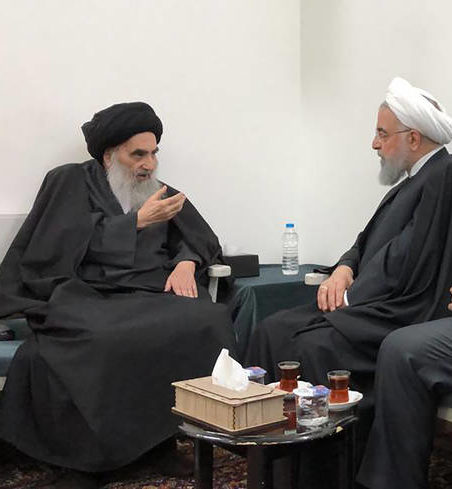March 15, 2019
Sistani’s office issued a statement describing the meeting in Najaf and saying that Sistani made clear that Iraqi sovereignty must be respected and weapons kept in state hands, a veiled reference to increasingly influential Iran-backed militias.
It was the first meeting between an Iranian president and the 88-year-old Grand Ayatollah, who rarely weighs in on politics but exerts wide influence over Iraqi public opinion. Sistani is Iranian-born and speaks Arabic with a Persian accent, but that hasn’t limited his influence in Iraq.

Sistani knew Ayatollah Ruhollah Khomeini well when Khomeini spent a decade and a half in exile in Najaf. But Sistani has made clear many times that he does not agree with Khomeini’s views on the role of Islam in government and holds by the old philosophy that the clergy should remain far from government.
Sistani welcomed “any steps to strengthen Iraq’s relations with its neighbors … based on respect for the sovereignty of the countries and no interference in domestic affairs,” the statement from his office said.
“The most important challenges facing Iraq are fighting corruption, improving services and keeping weapons in the hands of the state and its security services,” it added. Everyone viewed that last phrase as aimed clearly at the Islamic Republic.
The meeting came on the third day of a state visit by Rohani geared to project Iran’s political and economic influence in Baghdad and expand commercial ties to help offset renewed US sanctions.
The media in Iran focused heavily on the fact that Rohani made a full and public state visit while US President Donald Trump “sneaked” into the country unannounced a few weeks ago. Trump visited US troops and was not making a state visit to Iraq.
The last Iranian president to visit Iraq was Mahmud Ahmadi-nejad in 2013. He asked for a meeting with Sistani, but Sistani turned him down. Sistani has met with some officials of the Islamic Republic and declined meetings with others. It isn’t clear what his standard is.























